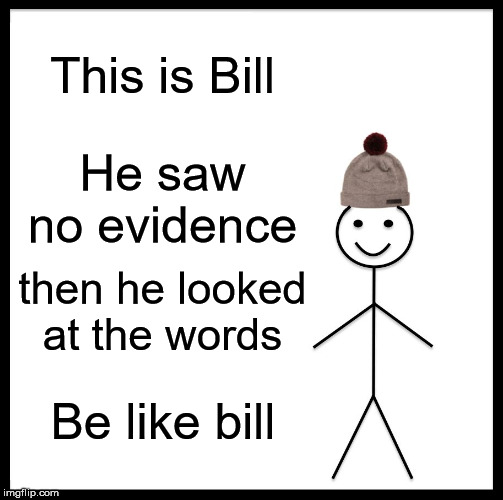Indeed, such was the situation, for thousands of years. But VO solves the ship of Theseus problem, thus the problem of the self, revealing that behind the theoretical problem lay a deeper, existential problem at the heart of mankind.
That the problem could hitherto not be solved does not mean that we ought to disregard it and thereby consider it to no longer present itself.
It only means that mankind had not yet matured enough to look behind the question at what is actually being pined for.
“God”
This lack of understanding has been transposed to the inside of, if you will, experience – so that it now no longer means ignorance but cowardice.
Or, more mercifully; fear and confusion as to the source of the fear.
There’s no necessary requirement for the self to be constituted only from the more directly controllable “parts” of experience. “You” experience others and all “parts” that aren’t “your self” all within the same experience. Why are they then not “you” as well? And if you count everyone as you, where does the pronoun “you” make any difference as a concept since there’s nothing else against which to give it relative meaning. The “self” is all in unity, in more or less degrees of direct control or otherwise, with therefore no reason to think of it as “self” in the first place since since there is no “other” when you think of it in this wider way.
So “your” experience already inserts these value judgments of discrete experiences
As stated in my previous post, I reject the notion of discrete experiences.
“Entity”, as stated, is in no way cognate with “discrete experience”.
Im not sure how crucial the equation of these two things is to your ontological argument.
into the fundamental premises - and in just the same way as I just covered: if you have a faulty premise you will reason faulty conclusions.
This is why I threw out the initial assumption of self and “my” experience - as it didn’t fundamentally match up with experience as it exists in continuity. “My” experience could therefore not be trusted, and only “Experience” could be. You have to be able to let go of ego and all instinctive assumptions to be able to see experience as a whole in this way. You’ll find that even if you’re successful, what you thought of as yourself goes along and does its thing in just the same way as before regardless.
All I know of experience is that it involves an “I”.
Anything beyond that suggesting there is no I, contradicts experience. Therefore, when we stay really true to actual experience, experimentalism refutes itself.
What is of course the case is hat the I is continuous and fluid. But certainly it isn’t border-less; run against a wall.
Experience reveals the limits to the I, and thus the I’s existence.
Nuclear physics and all science and knowledge involves resistance only because of the above faulty premises.
Man engineered in terms of these resistances and built nuclear reactors. Premises used were thus accurate. This is revealed directly by experience.
It’s only once we accept such premises that we can perceive knowledge about resistance and power. Experience has a continuous variation in consistency throughout its fabric - obviously it’s not homogenous or there would be no grounds to superimpose “boundaries” between discrete entities. But rather than heterogenous it’s more “congeneous”. To overcome the strong nuclear force within an atom, you might perceive a resistance against your efforts - but there simply needs to be the correct conditions, and the atom is split or fused with another. The correct conditions can occur just by the sun being the sun, or it can occur just by a person being a competent enough scientist. Whatever the route, it’s nature being nature and the spectrum of consistency that pervades experience continually shifts itself around simply through being what it is. Any “resistance” here is a human valuation injected into the premises, thus leaving open the possibility to detect dissonance between discrete experiences and Continuous Experience. You can only get out resistance if you inject in the resistance of forcing “discrete” experiences from Continuous Experience in the first place. Our conceptual models of how these concepts interact can only contain all these “artworks of resistances” if you’re assuming things that involve resistance from the start: it’s circular.
The problem as I see it is that you do interpret your experience logically, before letting it speak for itself.
In your argumentation, experience is an abstract thing which doesn’t need to be falsified by experience.
I wonder if you can rebuild your argument without the assumption that “entity” equates to “discrete experience” and that it stands in contradistinction to “continuous experience”. Remember, this challenge was also present in my previous post.
*I do invite you to read through this thread to learn of my methods. Ill reveal that indeed, it is still the ship of Theseus. What matters is the terms we set out initially to define the ship, but equally important is the logical method we use to give and uphold a definition. That is really what ontology comes down to, the structure of the definition; thus a proper ontology includes a complete philosophy of epistemology.

